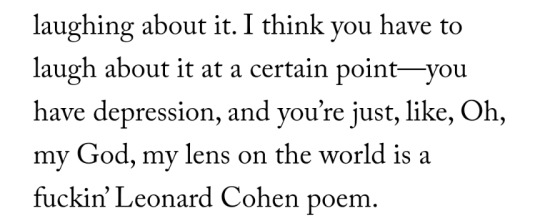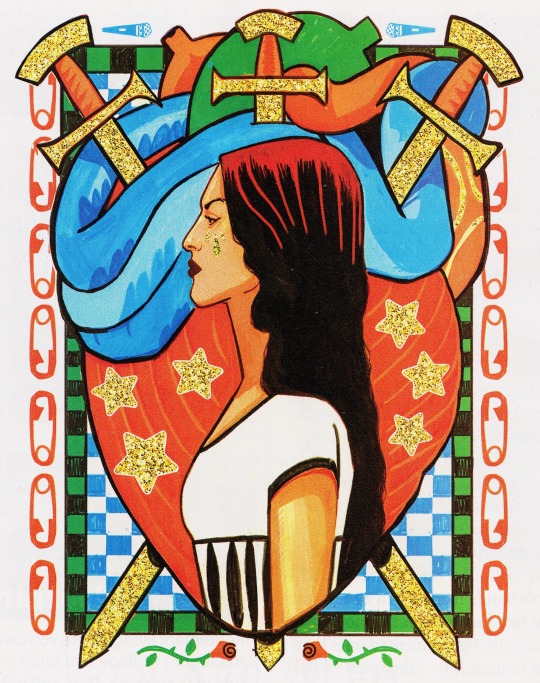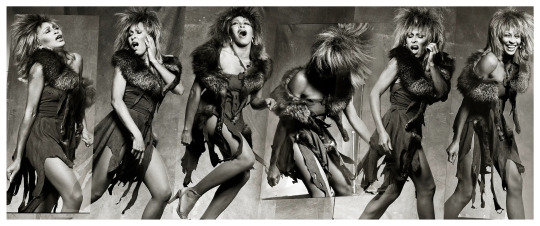#amanda Petrusich
Text

Hayley Williams photographed by Peyton Fulford for The New Yorker (interviewed by Amanda Petrusich), you can read the article here. ( archived here )
#paramore#hayley williams#photoshoot 2023#the new yorker#this is why era#archive#amanda petrusich#peyton fulford#interview 2023
275 notes
·
View notes
Text

excerpt from Hayley Williams for the New Yorker by Amanda Petrusich
#hayley williams#the new yorker#new yorker#new yorker magazine#amanda Petrusich#paramore#petals for armor#flowers for vases#descansos#this is why#leonard cohen
35 notes
·
View notes
Text
To truly understand the Pogues requires a certain looseness of spirit. Not in the classically debauched, booze-and-cigs sort of way (though, to be fair, an affinity for hurling oneself toward oblivion in the back of some grim and sticky dive probably doesn’t hurt), but in a more elemental, constitutional way: these are songs for people who feel everything, want it all, love with irresponsible abandon, care too deeply, can’t let it go, embrace any chance to be subsumed by desire or ecstasy or utter devastation, and are, in the most general sense, tuned in to the overwhelming abundance of the human experience. If you are someone like that—preoccupied by the assorted ways in which we buoy and destroy one another, by how insanely good and bad it all feels—Shane MacGowan is your dude. Play his records as loud as you can, trip over something, stay up too late, pay for a round. Tell someone you love them, and that you always, always will.
—Amanda Petrusich, from "Shane Macgowan Leaves the Astral Plane" (The New Yorker, December 1, 2023)
6 notes
·
View notes
Text
not the major devastations but the strange little ache that feels like a precondition to being human...the slow accumulation of ordinary losses
Last fall, the National débuted a new piece of merchandise: a black zippered sweatshirt featuring the words “SAD DADS” in block letters. The band—which formed in 1999, in Brooklyn—was lampooning its reputation as a font of midlife ennui, the sort of rudderless melancholy that takes hold when a person realizes that the dusty hallmarks of American happiness (marriage, children, a job in an office) aren’t a guarantee against despair. For more than two decades, this has been the National’s grist: not the major devastations but the strange little ache that feels like a precondition to being human. No amount of Transcendental Meditation, Pilates, turmeric, rose quartz, direct sunlight, jogging, oat milk, sleep hygiene, or psychoanalysis can fully alleviate that ambient sadness. Part of it is surely existential—our lives are temporary and inscrutable; death is compulsory and forever—but another part feels more quotidian and incremental, the slow accumulation of ordinary losses. Maybe there’s a person you once loved but lost touch with. A friend who moved to a new town. An apple tree that stood outside your bedroom window, levelled to make way for broadband cable. An old dog. A former colleague. We are always losing, or leaving, or being left, in ways both minor and vast. “The grief it gets me, the weird goodbyes,” Matt Berninger, the band’s vocalist, sings on “Weird Goodbyes,” a recent song featuring Justin Vernon, of Bon Iver. Berninger steels himself to confront the next loss: “Memorize the bathwater, memorize the air / There’ll come a time I’ll wanna know I was here.”
— Amanda Petrusich, "The Sad Dads of the National" (The New Yorker · April 28, 2023)
#Amanda Petrusich#The National#Matt Berninger#sad#melancholy#ache#grief#loss#depression#mental health#Vernon Jordan#Bon Iver
24 notes
·
View notes
Text

K. Wroten's illustration for Amanda Petrusich's piece on Olivia Rodrigo in this week's New Yorker magazine.
2 notes
·
View notes
Text
The Untouchable Tina Turner

Some people perform music; some people become music.
By Amanda Petrusich
May 25, 2023
On Wednesday, one of the great American voices—gritty, vehement, tender, and red-hot, containing, somehow, both the entire history and future of rock and roll—went silent. Tina Turner, who was born Anna Mae Bullock, in 1939, in Brownsville, Tennessee, died at her home in Switzerland, at age eighty-three. She was known for her superhuman resilience, and, in a way, I came to believe that she was actually invincible. In 1988, when she was forty-eight years old, she performed to some hundred and eighty thousand fans in Rio de Janeiro, ousting Frank Sinatra from the record books by drawing what was, at that point, the largest-ever ticketed crowd for a solo performer. The show was filmed, thank heavens. The energy is uncanny. Bionic. It’s like watching an Olympic final in Being Badass. Early in the set, wearing a fringed minidress, heeled ankle boots, and a pearl necklace, Turner performs “Better Be Good to Me,” a single from 1984. It’s a song about being in love with someone you don’t entirely trust. “Should I be fractured by your lack of devotion?” she wonders in the first verse. The next bit contains all of her magic. She’s asking a question, but her tone isn’t earnest, it’s incredulous. How dare this person expect her to compromise? “Should I? Should I?” she roars. You will want to holler “NO!” at your screen—but, of course, the question was always rhetorical.
Turner was brought up on a cotton farm and educated in a segregated, one-room schoolhouse. She grew up singing in the choir of the Spring Hill Baptist Church in Nutbush, about sixty miles northeast of Memphis. Her great-great-grandfather, Logan Currie, Sr., had been enslaved in the same region. “I hated the cotton field,” she told Henry Louis Gates, Jr., in a 2007 interview for PBS. “There were those hairy worms crawling, the spiders.” Turner later moved to St. Louis, where she met Ike Turner at the Manhattan Club, a Black bar and venue. She eventually persuaded Ike to let her sing with his band, the Kings of Rhythm. They became romantically involved, and, in 1960, formed the Ike & Tina Turner Revue, becoming hugely popular on the Chitlin’ Circuit, a series of Black-owned night clubs throughout the southeast. In 1971, they had a crossover hit with their cover of Creedence Clearwater Revival’s “Proud Mary,” and performed the song on “The Ed Sullivan Show.” For the broadcast, Turner wears a gold flapper dress. She bounces around the stage vigorously, so gleeful and open and strong that it feels as though, surely, she must have an extra set of lungs stashed somewhere. There’s a looseness to her performance that’s far funkier and more human than the hyper-choreographed, steel-eyed stylings of her modern counterparts. I don’t know how to describe it. She is simply very, very alive.
It’s still hard to write about the sixteen years she spent in that abusive, ugly relationship with Ike. She escaped the marriage in 1976. She was thirty-seven years old, and in possession of just thirty-six cents and a Mobil gasoline card. “I didn’t fear him killing me when I left, because I was already dead,” she told People, in 1981. It was the first time that she had spoken publicly about the abuse, and she described it as “torture.” Besides the usual subjugations (beating and berating her), Ike had changed her name and assumed control of her career and finances. It’s easy to think of this experience as the defining trauma of Turner’s life and art—to presume that it shaped and informed her music in a deep and irrefutable way—but it feels stupid, even unfair, to give Ike, who died of a cocaine overdose in 2007, any more air in her story. There have been two memoirs, a Broadway musical, a feature film, interviews. Turner was asked to confront and remember her abuse for decades after it ended. It feels proper to free her of it now. “I don’t like to pull out old clothes,” Turner said in “Tina,” an HBO documentary from 2021. “It’s like old memories, you just want to leave that in the past.”
Let us look, then, to the nineteen-eighties, a decade in which Turner, liberated from her marriage, dominated the charts and the national imagination: the voice, the power, the presence, the legs, the wardrobe, the hair. My God, the dancing! How free does a person have to be to move that way? Freer than I have ever felt or been, certainly. Some people perform music; some people become music. If you’re having a miserable day, one foolproof cure is typing “Tina Turner live 1985” into the YouTube search bar, and bearing witness to something virtuosic, if not divinely ordained. At the time, Turner was on tour in support of the multiplatinum “Private Dancer,” her fifth full-length album, and the record that resuscitated and then ignited her solo career. There’s some extraordinary footage of David Bowie joining her onstage at a show in Birmingham, England, for a duet of “Tonight,” a song first released on Iggy Pop’s “Lust for Life,” in 1977. Bowie, who co-wrote the track—it features a repeating Aretha Franklin sample—appears on the original; he went on to record it for an album of his own, in 1984. Turner guested on Bowie’s version (they skipped Pop’s spoken-word intro, which describes a heroin overdose). Watching them do it live is electrifying. Bowie is grinning so much and so wildly that I wonder how he even manages to keep on singing. They slow dance for a bit in the middle, while Tim Cappello plays a shirtless saxophone solo. I would call this section “steamy,” but it feels like too chaste of a word. “This is a privilege,” Bowie says, when it’s all over. Boy, does he mean it.
Turner’s later years were appropriately lavish. After she retired, she lived in Küsnacht, Switzerland, in an estate known as the Château Algonquin, with clear views of Lake Zurich, and, according to a 2019 profile in the Times, “a life-size two-legged horse sculpture suspended from a domed ceiling, a framed rendering of Turner as an Egyptian queen, a room stuffed with gilded Louis XIV style sofas.” A plaque on the gate announces that, of course, no deliveries should be attempted before noon. Who would dare? Turner stopped performing in 2009, freeing herself of a substantial burden: “I was just tired of singing and making everybody happy,” she said. “That’s all I’d ever done in my life.” How glorious that must have felt—having only to worry about her own joy.
I was having lunch in Chinatown with friends when the news was announced. I had ordered a glass of white wine—indulgent for a weekday afternoon, I suppose, but I was feeling a little indulgent. I experienced a quick pang in my gut when one of my companions announced that Turner had died—the sharp, needling ache that comes when someone who you didn’t know personally, but who you understood to have contributed, in a profound and robust way, to the general goodness of the world, had left it. I swallowed the last of my drink. It felt right to be a little unsteady in that moment. “Tina would have had the wine,” the group chat later confirmed. Did Turner even drink? Who cares? The point was that she found a way to tap into some deep wellspring of ease and abandon and self-love, and drew from it when she needed to. And now she has left that for us, in her music, in her voice, in the singular way she occupied a stage. In this sense, she is untouchable, forever. ♦
#Tina Turner#The New Yorker#Nutbush#Brownsville#Tennessee#Küsnacht#Switzerland#Château Algonquin#Amanda Petrusich
1 note
·
View note
Text
Flipping through The New Yorker, I came across a timely piece about Sinéad O’Connor, days after her untimely death. The meditations on death run true. Amanda Petrusich, a music journalist, writes, “When something disappears before we want it to, we are left powerless, incomplete, yearning. There is simply no antidote to that kind of humiliation.” She illustrates with a verse from O’Connor’s…
View On WordPress
1 note
·
View note
Text

That night, I had two opposite—but equally intense—impulses. One of them was to get fucking wasted. To get as wasted as I would have in those “singing along to ‘Sally MacLennane’ in the pub” days; to get so plowed all the stuff that Shane’s death brought up for me would sink beneath a stream of whiskey. The other was to not drink, at all; to not only stay sober that night but to never touch a drop of booze again. Because of Shane’s life-long struggles with addiction, because of so many of my beloveds’ struggles with addiction, because of my own struggles with addiction—my own affinity for hurling [myself] toward oblivion in the back of some grim and sticky dive, as Amanda Petrusich put it in her wonderful tribute to Shane.
—from "That night, Rain Street went on for miles."
The newest installment of my newsletter is about Shane MacGowan/The Pogues, punk/poetry, addiction, and romanticizing things that are 'bad,' amongst other things. I've been working on this one for a month, and I'm glad it's finally out in the world.
#jessie lynn mcmains#writers on tumblr#shane macgowan#the pogues#romanticizing everything#addiction#my writing#btw: yes i am aware of substack's n*zi problem#yes i am looking for a new platform#i'm gonna keep posting on substack until i find a viable alternative though
30 notes
·
View notes
Text



John Cale’s Inventive Retrospection by Amanda Petrusich in The New Yorker
It is not hard to sense that same spirit in Cale. In the early nineties, Cale closed most of his sets with a cover of Leonard Cohen’s “Hallelujah,” which Cale first recorded in 1991, for a tribute album titled “I’m Your Fan: The Songs of Leonard Cohen,” and later included on “Fragments of a Rainy Season.” “Hallelujah,” which was released by Cohen in 1984, has been covered so relentlessly that it now feels like a shortcut for conjuring feelings of despondency. In 1991, though, the song was still an obscure track from “Various Positions,” a record that nobody was paying much attention to. Cohen’s take is cool and moody, sung in a staid, stately baritone. Cale’s version is sparse and undulating, and he sounds freshly gutted after every verse. It’s this iteration—which Jeff Buckley covered in 1994 and Rufus Wainwright sings on the soundtrack for the animated film “Shrek”—that most people recognize.
Cale also monkeyed with the lyrics. After he heard Cohen singing different words to the song during a show at the Beacon Theatre, he asked about alternative verses. Cohen reportedly faxed him fifteen pages of unused lines; from these, Cale pulled together new lyrics, which change the entire narrative trajectory of the song, making it bloodier, less celestial. It contains a heartbreakingly succinct account of how it feels to watch someone fall out of love with you:
There was a time you let me know
What’s really going on below
But now you never show it to me, do you?
I remember when I moved in you
And the holy dove was moving too
And every breath we drew was Hallelujah.
The fifth verse opens, “Maybe there’s a God above / but all I ever learned from love / was how to shoot at someone who outdrew you.” On this line, Cale resists the temptation to sing “you” as the more colloquial “ya,” which Cohen often did, and cheekily—to make it rhyme in a satisfying way with “hallelujah.” He seems to know that the lyric contains too tough a lesson to be made cute: how to be bested by someone you trusted but still land a blow on your way down. How to survive.
A week before Cohen died, in November, Cale released a video for his version of “Hallelujah.” It features Cale—sturdy and muscular, dressed in black, with heedless white hair and a goatee that makes him appear slightly devious—seated at a grand piano overrun with crickets and mealworms. A long string of pearls is wrapped around his left wrist. In one sequence, Cale is lying flat on the floor, and the worms are inching around his face. The evocation, of course, is of decomposition.
11 notes
·
View notes
Text
Incorporating Pitchfork into a men’s magazine also cements perceptions that music is a male leisure pursuit, and undermines the fact that it was women and non-binary writers – Lindsay Zoladz, Jenn Pelly, Carrie Battan, Amanda Petrusich, Sasha Geffen, Jill Mapes, Doreen St Félix, Hazel Cills; the fearless editing of Jessica Hopper and then the most recent editor-in-chief Puja Patel, to name but a handful – who transformed the website in the 2010s. It also suggests that music is just another facet of a consumer lifestyle, not a distinct art form that connects niche communities worthy of close reading, documentation and, when warranted, investigation. It was Pitchfork’s Marc Hogan who reported that Win Butler of Arcade Fire – a band entwined with the site’s rise to relevance – had been accused of sexual misconduct by multiple women (extramarital relationships that Butler says were consensual); Pitchfork that published writer Amy Zimmerman’s report into 10 women accusing Sun Kil Moon songwriter Mark Kozelek of sexual misconduct (Kozelek denies the allegations). I wonder whether GQ will invest resources into reports like this, to sit alongside e-commerce pieces on how “The Best Cordless Stick Vacuum Will Turn You Into a Clean Freak”, to take one current example from their culture news feed.
6 notes
·
View notes
Text

Hayley Williams photographed by Peyton Fulford for The New Yorker (interviewed by Amanda Petrusich), you can read the article here. ( archived here )
#interview 2023#hayley williams#paramore#interview#2023#this is why era#archive#the new yorker#amanda petrusich#peyton fulford
102 notes
·
View notes
Text

vampire weekend art by dennis ericksson for the new yorker article by amanda petrusich
4 notes
·
View notes
Text

Billy Talbot of Crazy Horse :: The Aquarium Drunkard Interview
I'm slowly making my way through the members of Crazy Horse. First, there was Poncho. Then there was Nils. And now, you can read my Q&A with bassist Billy Talbot over on Aquarium Drunkard. Will I ever make it all the way to the whitest of whales, Neil Young himself? Who knows?! (In the meantime, Amanda Petrusich did a great job with this interview for the New Yorker.)
Anyway! Billy is not quite the raconteur that Poncho or Nils is, but he is a supremely soulful/thoughtful dude, just like you'd expect. He's the guy! That bass line in "Cowgirl in the Sand," the groove of "Tonight's the Night," those shaggy, awesome vocals throughout the years.
"Billy's a mystery, isn't he?" Neil mused in Shakey. "Billy's great. Billy's the reason why Crazy Horse is great, and Billy's also the reason why Crazy Horse has never had a hit record. 'Cause Billy's great, but not 'I can dance to it' great, know what I mean?"
Sign up for the Doom & Gloom From The Tomb Substack newsletter — Doom & Gloom delivered to your inbox every Friday!
11 notes
·
View notes
Text
One Hundred and Fifty
Subscribe to Sincere Positive Things right now, please!


Last month on the other Internet thing I do, a music-centric podcast called If You're Listening, my co-host Heather proposed an episode of songs with a December theme. Because I am a delightful scamp, I selected the song "July, July" by The Decemberists.
But I have been hoisted on my own petard because I've fallen into a Decemberists hole, listening (and re-listening) to a band I loved in high school and then, for whatever reason, fell away from.
If you've never listened, here's how I would explain them: you know pop music? Okay, now pretend it was written by a group of hyper-literate 18th century whalers. They can write a solid hook and a catchy four minute jam, but they'll also allow themselves some flights of fancy and venture out into 8 minute epics, often adapting ancient myths or epic poems into catchy song suites. The always barbed Pitchfork kind of hits the nail on the head when Amanda Petrusich wrote in one album review: "The quirks that make them such a target for snickering, disaffected aesthetes (namely, stuffing their songs with arcane historical allusions and library language) are also what make them a boon for drama kids in three-button vests."
Whether you've never heard of them or you've loved them for years, I've made you a playlist to help you test the waters.


More music! If Alan Rickman got you a Joni Mitchell CD for Christmas this year and you want to hear more of her back catalogue (or, for the rest of us, if you just want to listen to Joni Mitchell), she's done you a solid. Now you can find her entire catalogue on her YouTube page for free.
Now there's no reason not to listen to a side of one of her records, or, both sides, now!
The Mitchell Versus the Machine
5 notes
·
View notes
Text
On “Hope,” Koenig returns to the idea of submission. “My enemy’s invincible / I’ve had to let it go,” he sings. You can nearly hear the shrug. Control is a fiction. Justice might be, too. Or, as Koenig puts it, “The signatories broke the pact / The surfer sacked the quarterback / Your bag fell down onto the tracks / I hope you let it go.”
Amanda Petrusich
0 notes